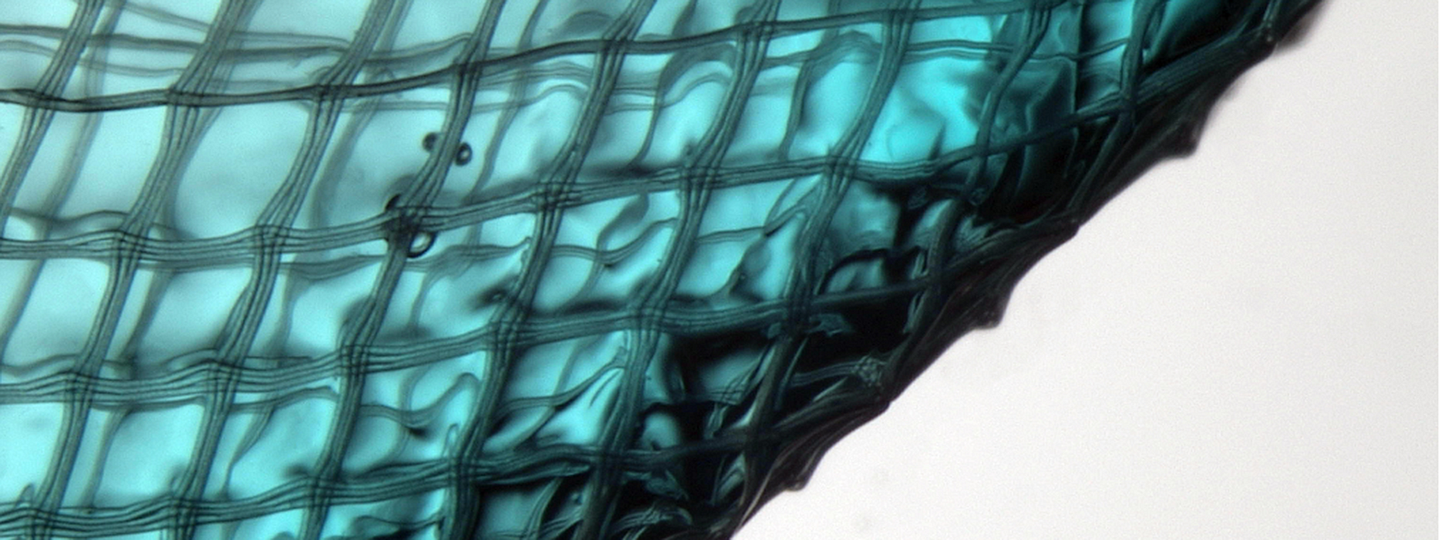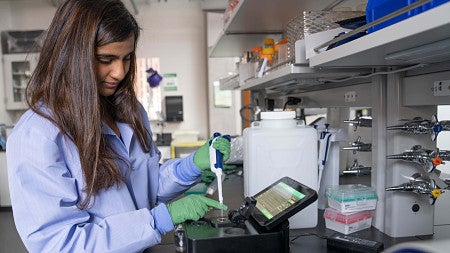

With new funding from three recent research grants, bioengineer Marian Hettiaratchi is seeking new insights into the role of proteins in tissue repair and exploring new ways to potentially promote central nervous system repair. An assistant professor in the Phil and Penny Knight Campus for Accelerating Scientific Impact, Hettiaratchi focuses on creating biomaterials to deliver proteins to different types of injuries in the body.

“I’m passionate about this type of work because it has great potential to improve human health,” Hettiaratchi said. “My lab is situated at the intersection of basic and applied research. Being at the Knight Campus has allowed us to form multiple collaborations to engage in work that ranges from clinical translational to fundamental science.”
Hettiaratchi’s three projects involve collaborations with other UO faculty members, including those in the Institute of Molecular Biology and Knight Campus researchers Parisa Hosseinzadeh and Nick Willett. They include:
- A National Institutes of Health R35 Maximizing Investigators' Research Award (MIRA) for Early Stage Investigators to develop “affinity-based biomaterials” to control the delivery of proteins to treat injured tissues. The project takes a molecular biology approach to provide new insights into the roles that many proteins play in governing tissue repair. The goal of the project is to create a transformative new regenerative medicine strategy through the creation of a new class of highly modular biomaterials for treating multiple types of injuries.
- A Discovery Award from the Department of Defense’s Peer Reviewed Medical Research Program to develop a strategy to better localize proteins within clinical biomaterials to stimulate bone repair. The project seeks to transform current clinical practices to enable the use of lower, safer protein doses. Contributors include Knight Campus bioengineering Ph.D. candidate Jonathan Dorogin.
- A grant from the Donald and Delia Baxter Foundation to examine the roles of biochemical and mechanical signals in central nervous system injury and repair. The project has the potential to provide insights into the ways in which cells in the central nervous system respond to a variety of signals during injury and repair and could inform new therapeutic strategies to regenerate tissues in the brain and spinal cord following damage caused by stroke or injury. Chemistry Ph.D. candidate Veronica Spaulding and Knight Campus Undergraduate Scholar Esther Mozipo contributed new biomaterial tools to this project.
Hettiaratchi’s grant from the Baxter Foundation is the second award from the sponsor to a UO investigator this year. UO biology professor Melanie Spero received a grant from the foundation for her project, “Metabolic rewiring as a mechanism of antibiotic resistance.”
Header Image Caption: Hyaluronic acid hydrogel inside a polycaprolactone scaffold fabricated using melt electrowriting in the Dalton Lab at the Knight Campus.
